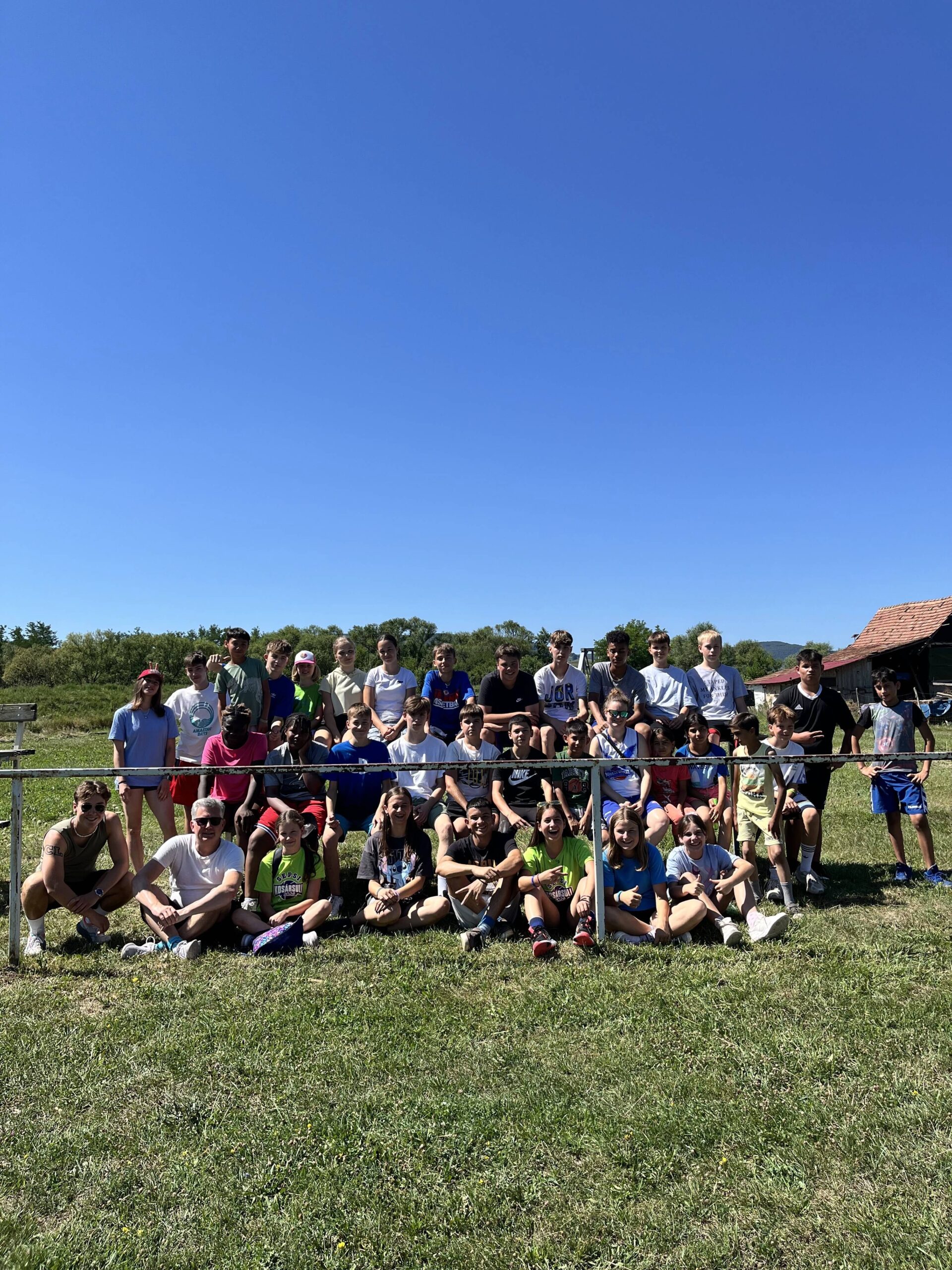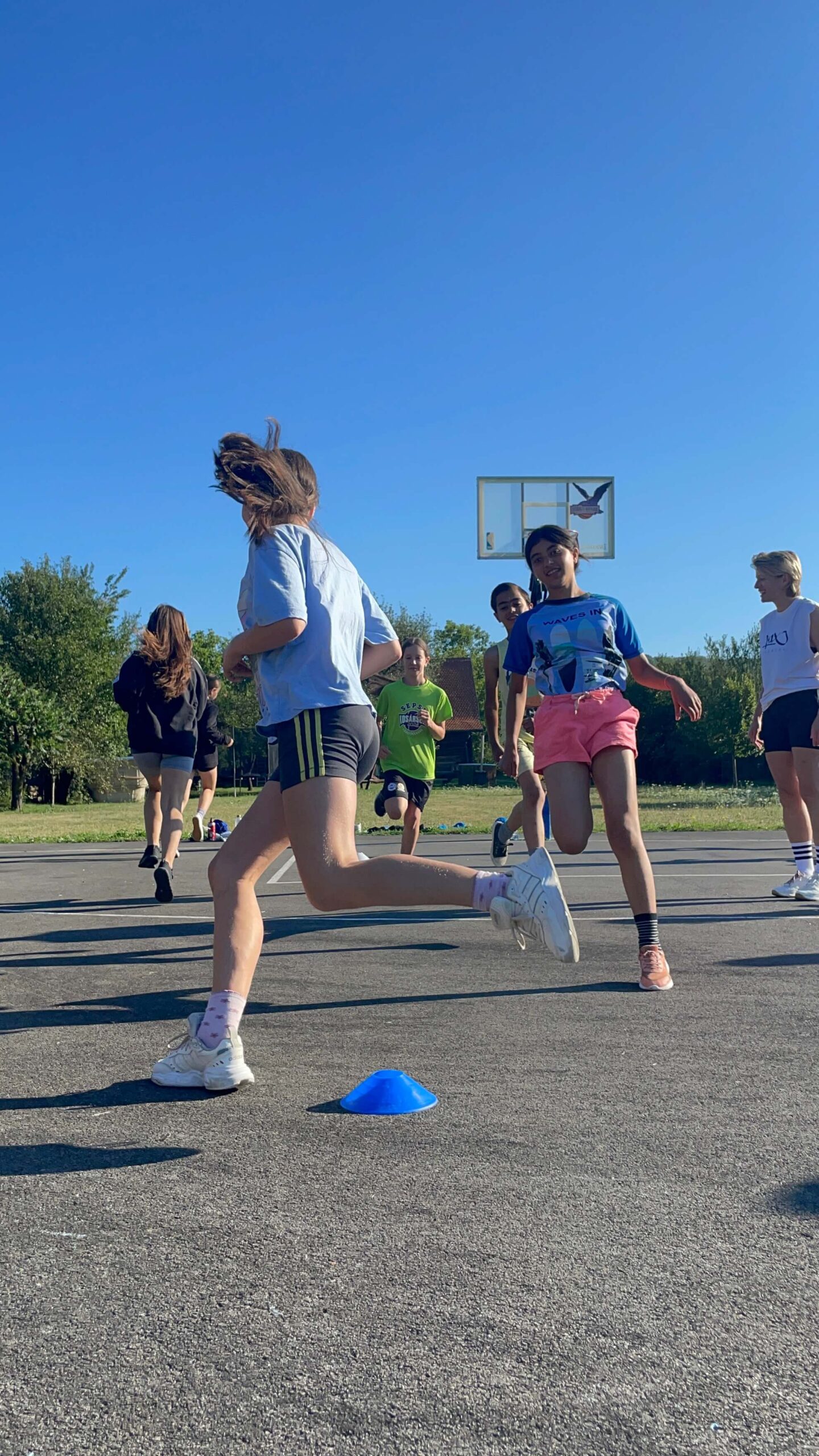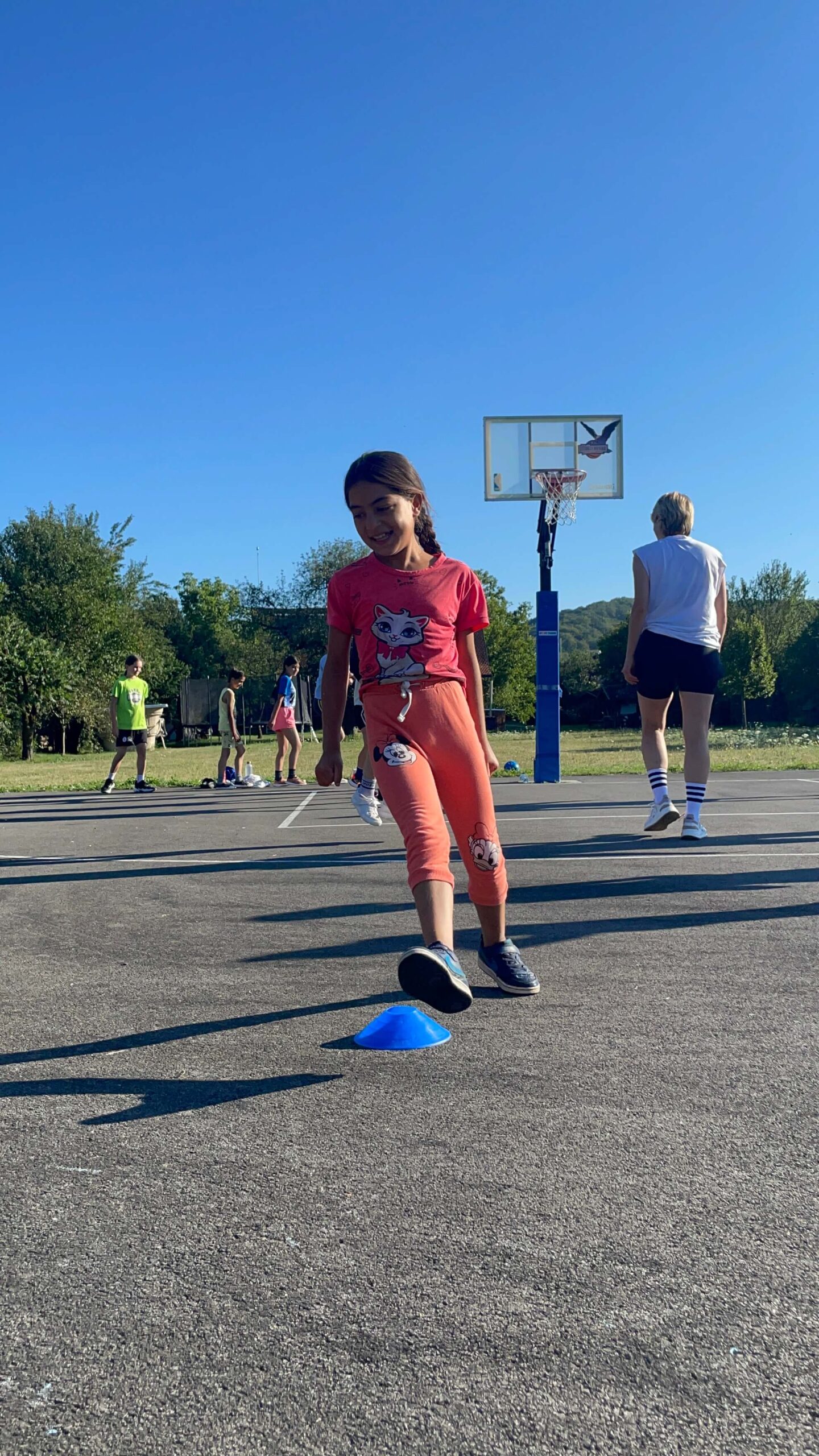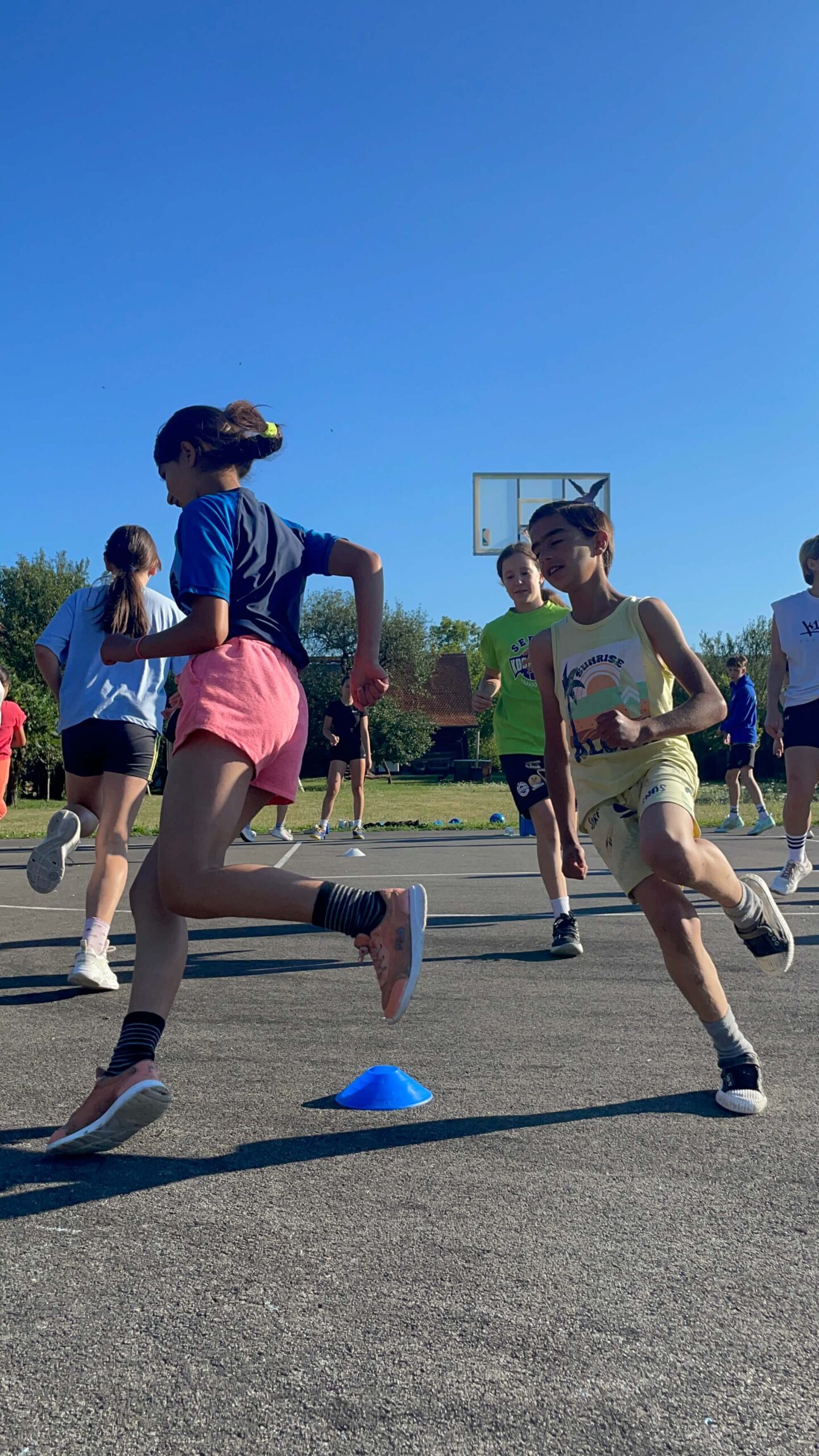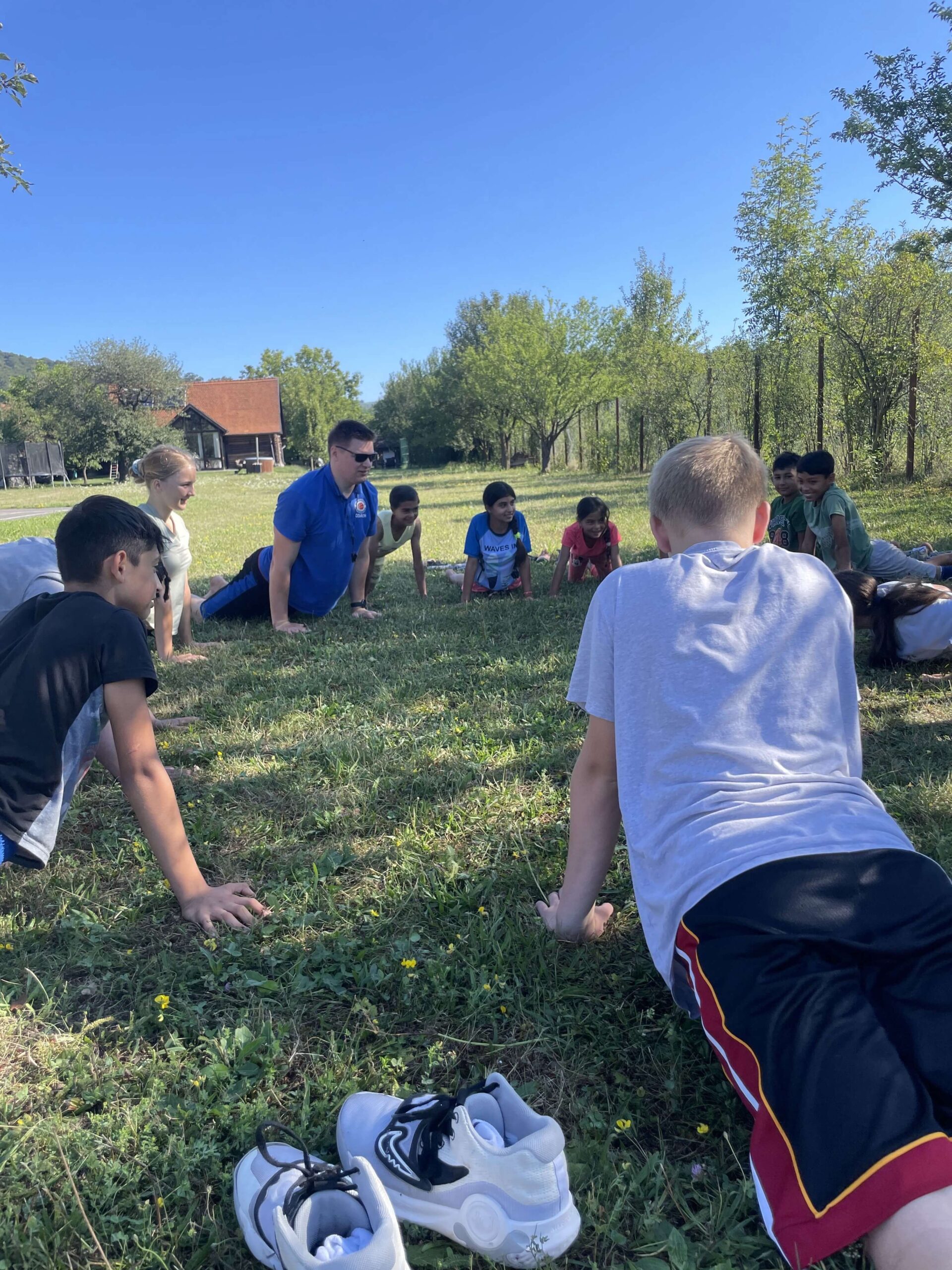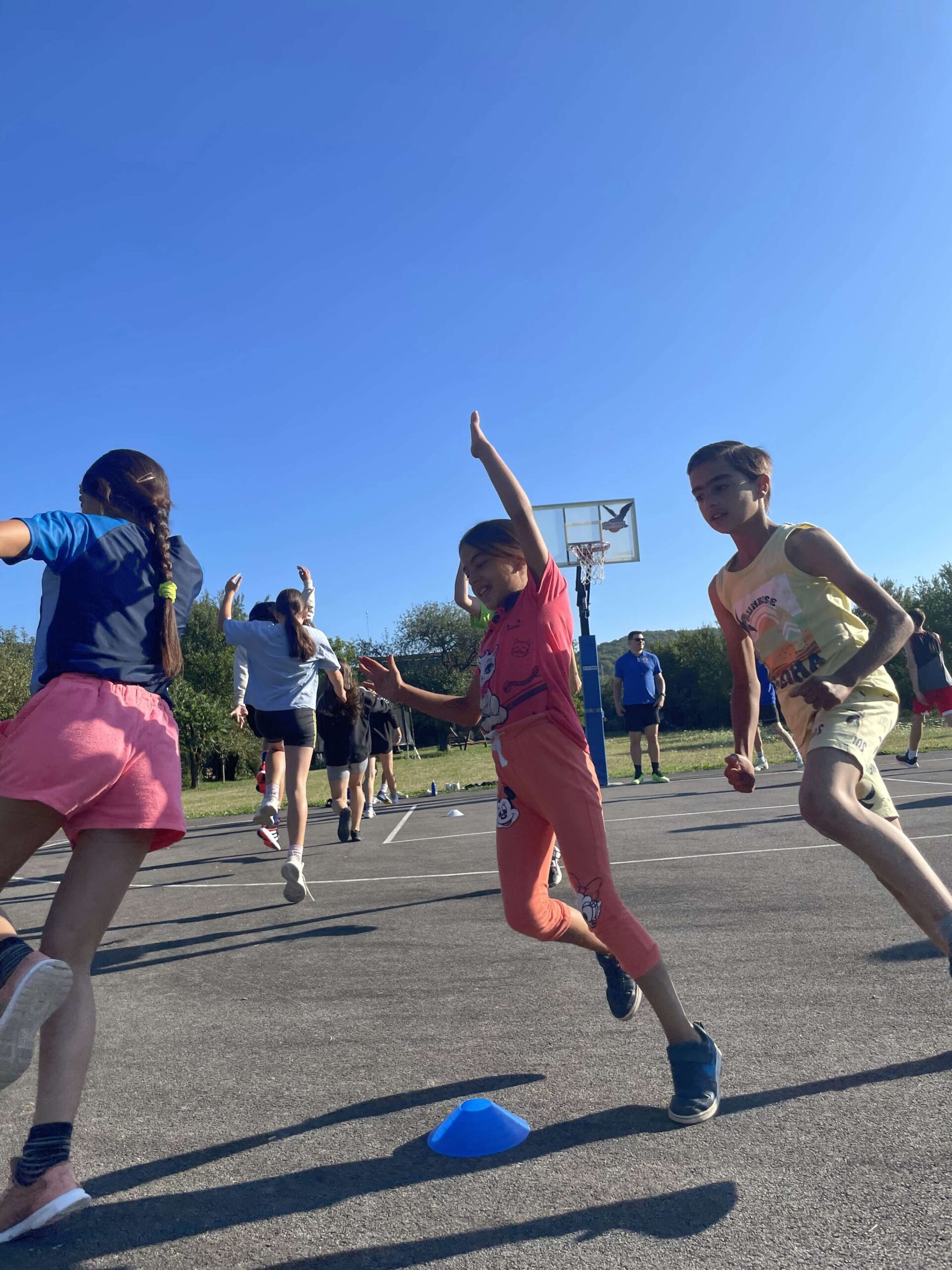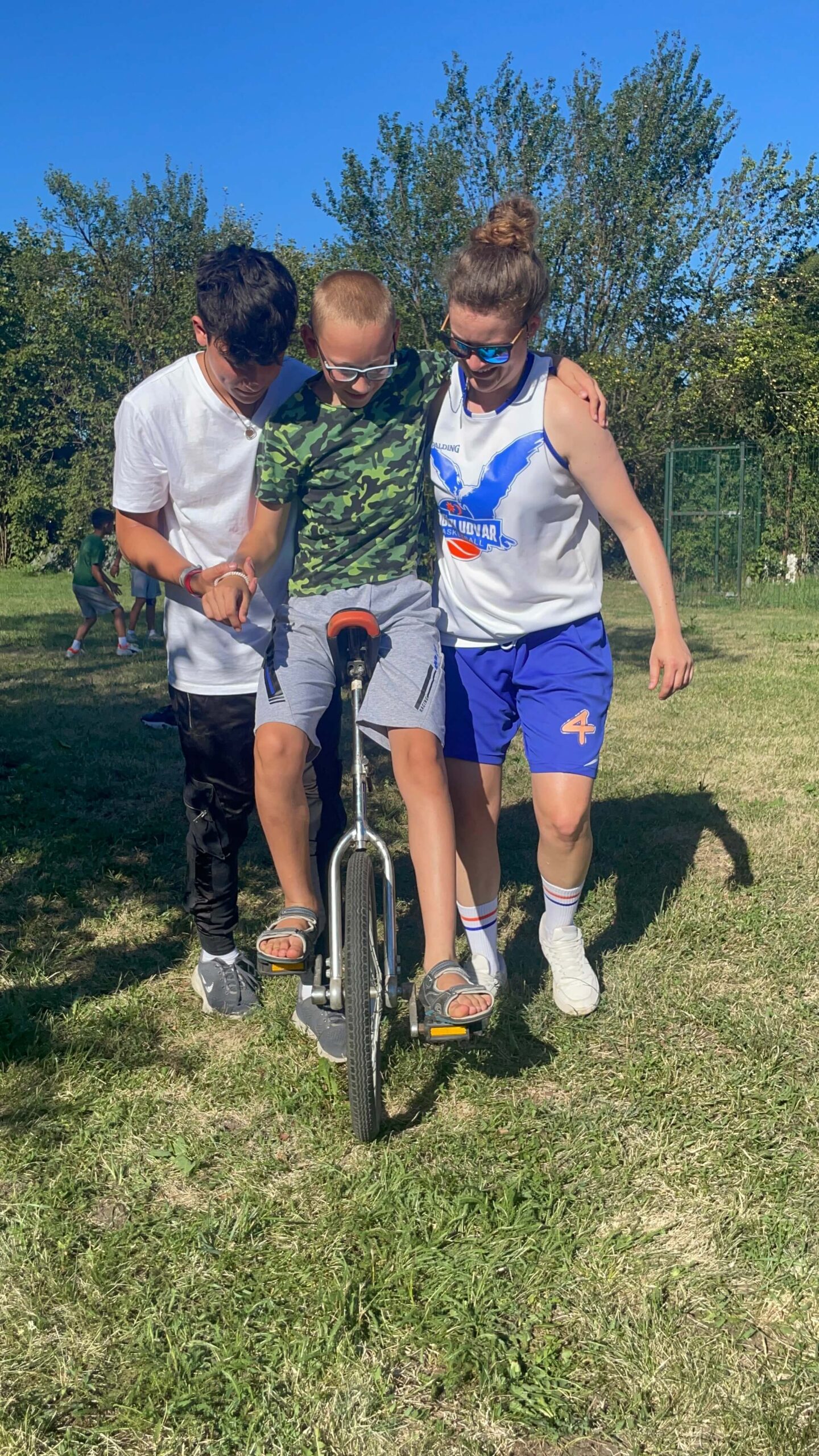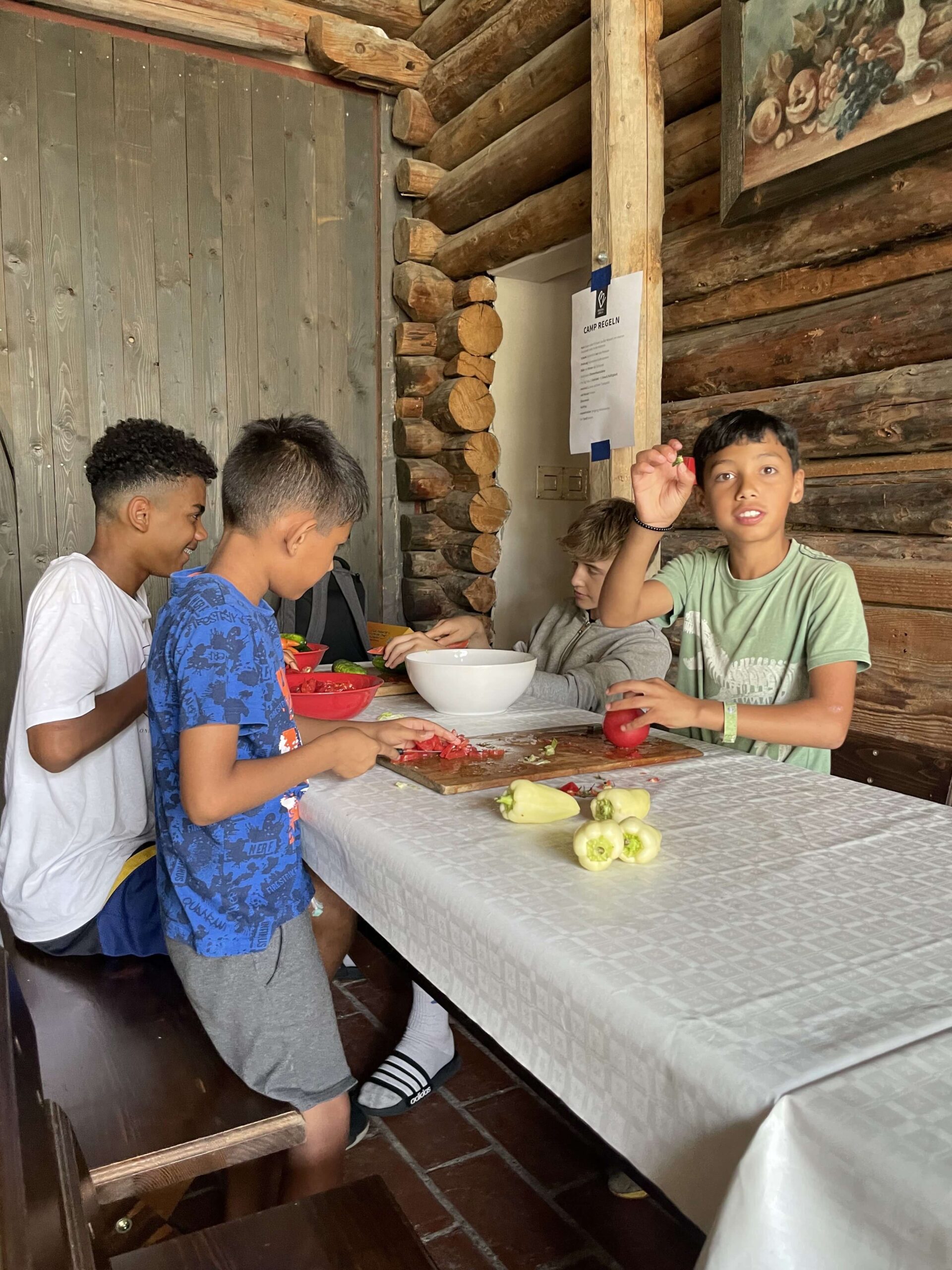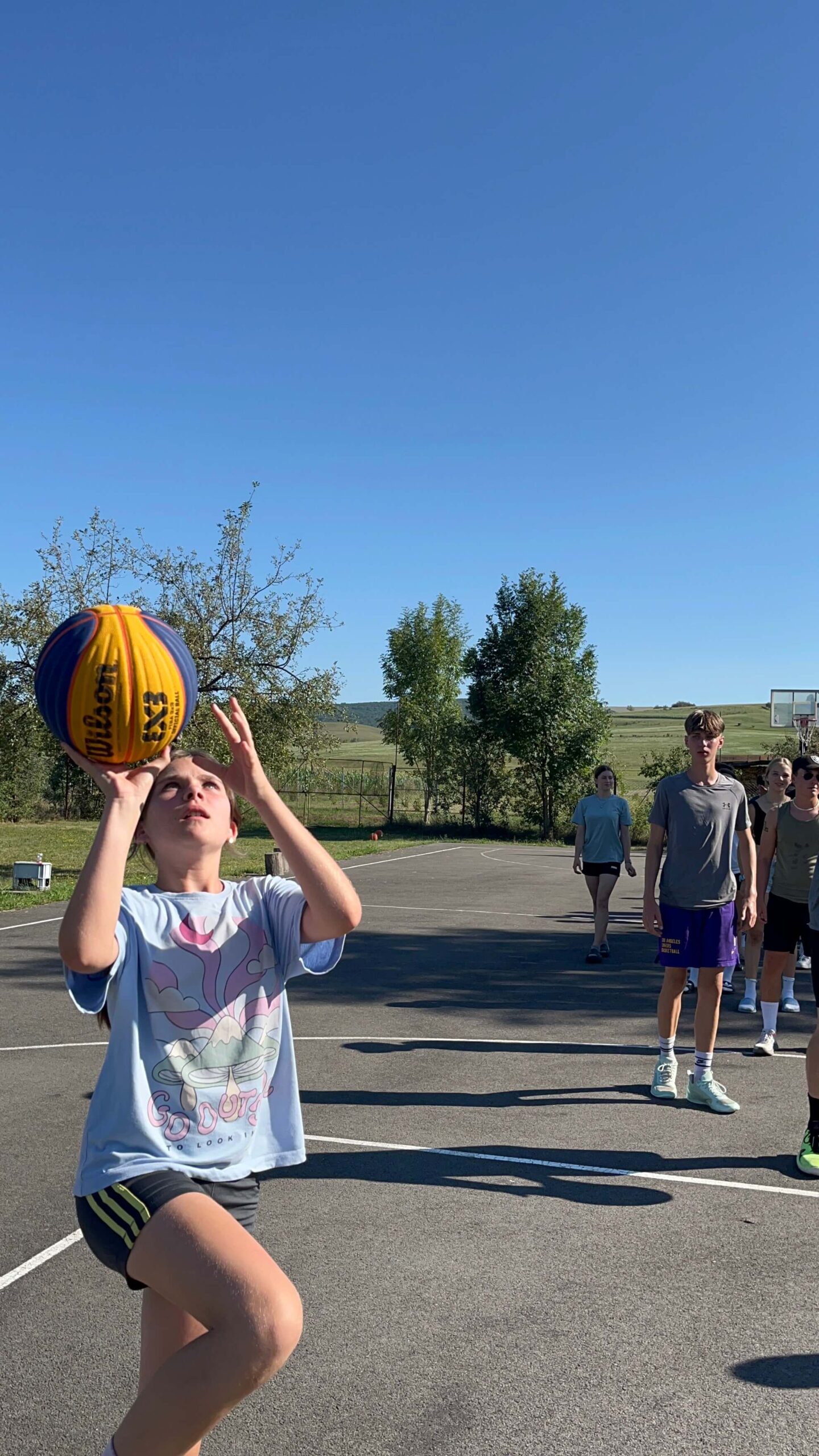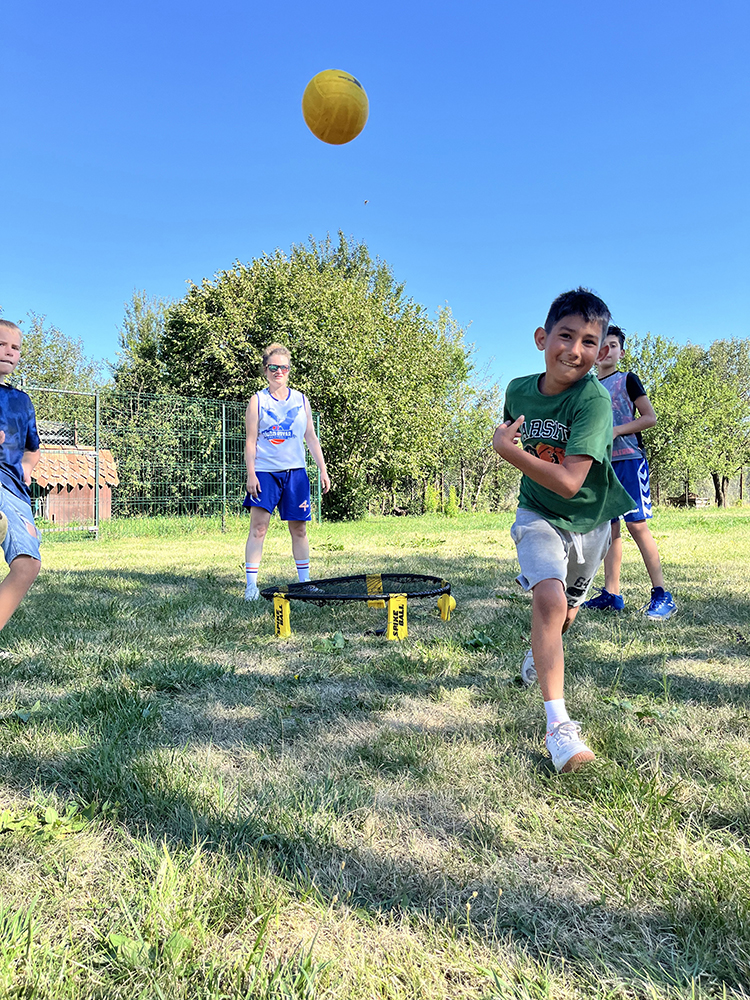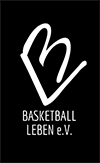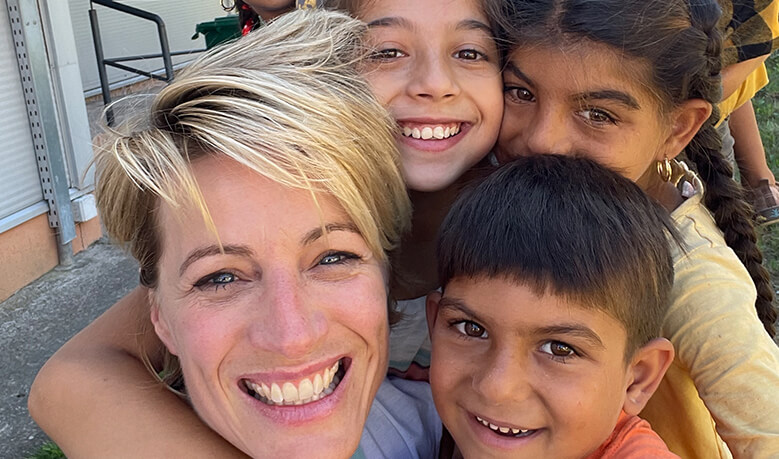Written by Valts Rozentāls
Bögöz greets us with a lovely, sunny day. Sun is already warming up the ground, in the shady places the grass is still wet and comfortably refreshing. One needs nothing more to wake up than a brisk walk over the field and the warm sunlight. If there is some coffee too, it is perfect. Strangely enough, this group is already up and we do not need to wake them up. This pattern would continue throughout the week. I don’t think we ever had a group that woke up this early by themselves. Even if they mentioned that the training in the morning was too early… go figure.
Practice is standard. We try to mix the kids up between Munich and Bögöz, so we can have demonstrations from Munich kids and spare some translation to Hungarian. Level has gone up since last summer and local kids understand more and catch up faster. Another pleasant observation is that they understand and speak more English – which makes communication lighter and more efficient on our side as our Hungarian is really not so great.
Then we split up and me and Sandy went to the Kisgalambfalva (Small-pigeon-village) to check on the local gym where we want to invest some time and materials to mount the baskets on the walls and bring some lines on the floor in the form of a (smaller) basketball field. Driving around Romania is always a little adventure. This summer – roadworks. I guess it depends on whenever they get some budget for the roads, so there is construction going on every couple kilometers. This, of course, slows us a bit down.
Once we get to Kisgalambfalva – we get out and the first thing is to get the key for the gym. This is where the small community really shines – the personnel from school have left the key in the nearby corner shop next to the facility. Keep it simple. We get in and observe the place. It’s not new anymore. Some lines on the floor are missing, some are completely gone. Walls and equipment are worn down and damaged. Storage room is full with random stuff, one would not really associate with a sports facility. We can’t fix everything, but we can make some things better. We inspect the walls where we tend to fix the baskets onto. I’ve brought some quality screws with me – they should hold nicely, as long as no one will dunk on the baskets and pull them down. We do some rough measurements and conclude – this won’t be perfect, but good enough for the environment we are working with.
Right in the middle of our visit there were a couple of kids running to us and shouting “Sandy, Sandy!” Those are Roma kids that are training in this gym we will be trying to fix up. At first there were a couple kids, then some more and at the end within a short time we had some ten kids in different ages around us. One bigger sister was carrying a smaller child and everyone wanted to get “up” in our arms, or well – at least hang in them. For my nature it is a bit too much touching and contact – these kids try to get or show all the love they can. After some time I need to set my “border” what is enough. This encounter leaves me thinking and even now I can’t rightfully describe this experience and what I felt at that moment. I saw bright faces, the biggest smiles and radiating happiness. They just want to be part of whatever is going on at the moment. Be included. And I guess as an adult I see it differently now, but it seems it’s true – despite how and in what conditions we grow up, most of us will remember our childhood mostly as a happy place. But now it’s time to move on.
Sandy got in contact with someone from the school to be sure that tomorrow we won’t be standing alone in the gym – everything is assured. The only open question is the handyman who’s coming tomorrow to help us. We do not know – is he any good? Will he have the right equipment with him? Powertools? Extendable ladder? I guess we will see tomorrow morning…
We leave the key again in the nearby shop and head off.
Sandy wants to go through “Wild-Galambfalva” where the excluded Roma’s live. I’ve been coming on this project for four years now and never came near one of the excluded communities of Roma people. This is a place outside and between two villages (Kisgalambfalva and Nagygalambfalva) on a small hill, next to a small “Târnava Mare” (Romanian or “Nagy-Küküllő” in Hungarian) River. I do not know what I expected. Until now I only had a vague impression of one of the earliest works on the Blog of Basketball Leben and some stories from Sandy and Miriam.
What I saw resembles something that is shown about remote tribes on natural documentaries in the deepest corners of the world. Far, far away. Another continent, another world.
But here I am, looking at this scene that unfolds to me as we drive by. Looking at this far, far away, but oh so close… And I see: no communications present – no clean, running water, no plumbing, no electricity, no facilities or heating. Houses (if that word even applies, I’d describe them more as advanced huts) are basic “cubes” with wooden beams as a frame and walls are filled with whatever the inhabitants could get their hands on. It might be wood or wooden boards, perhaps pressed cartons and some plaster. For the most part there are some kinds of roofing above the buildings, many have missing tiles. We won’t stop and look closer – it could become dangerous if we do it alone, just the two of us. Don’t have to be, but can. In my mind I do not see the danger, but then again – I do not want to find out either.
People are either between the allies, on the nearby field or down by the river. Scene in the river reveals that it is for everything: for people to wash themselves, to wash their horses or other animals if they have them, to wash their clothes and their dishes. You see many kids around, perhaps left to themselves. I’d imagine other rules apply – if you have some older siblings around, that’s enough. Adults need to go and do adult things. Provide however they can.
What shocks me the most is that we are not in some remote part of the world, tens or hundreds of kilometers from civilization, where one would expect these conditions. We are in the middle of eastern europe. European Union. And Romania has been part of it since 2007.
This is perhaps the idea that I can’t wrap my head around. They are living between two villages with necessary communications and utilities. And they are there because no one is willing to deal with them. And they come as they are because of it – it is a vicious cycle.
People say – but they won’t do this or that. Education could help, but the kids don’t come to the school. Latvians have a saying: “A satisfied person will not understand a hungry person.” And this is the attitude towards Roma. They are mis- or not understood. Looking at this scene I see only that they need a breather. A chance to have their basic necessities met. That is when you can lift your head up and see other opportunities. And we have seen this happen in the project – the moment the people are able to meet their basic needs, they can lift their heads and see what happens around. That is the moment they can learn and develop. That is the moment they break the cycle.
—
The rest of the team stay back with the kids and go on exploring Bögöz led by Szili and Dora.
As I was not there to observe the happening, here are the comments kindly provided by Miriam and Nadine.
Miriam:
“It was cool! The two of them did a great job. Szili talked about his town, traditions, and other random information. And Dora translated for us.
The mood was great. (As a group, we cheered for passing cars) Lots of laughter, lots of conversations.
The suspension bridge was, as always, a highlight for the Germans. But not just for them, also for our guests from Kisgalambfalva.
Oh, and the storks with their gigantic nests also led to many “ohh” moments for the kids from Munich. In response, the Romanians started singing a children’s song about storks.”
Nadine:
“In general it was super cute how Szilli did it. He was very proud to be in charge and that he could show us his “hood” and always making sure we didn’t lose anyone and that the group stays together. Dora was the translator and also did an AMAZING job.”
—
After all this we all met back at “Inn the Barn” for some lunch together. Followed by some free time for youth to share their first experiences and encounters among themselves and to get to know each other better. This year they really hit it off quickly, perhaps that had to do with some kids overlapping from both sides as they already knew each other. Familiar faces make it easier.
Then it was time for the “Summer Festival” with some basketball, spike ball, viking chess and circus curricula presented and taught by Johannes. Some snacks on the side and it turned out to be an active and pleasant evening – everybody together, as invitations went out to parents and other people from the community.
As usual, evening ended with dinner, showers, housekeeping and feedback. Then time for bed – tomorrow will bring more adventures.
—
